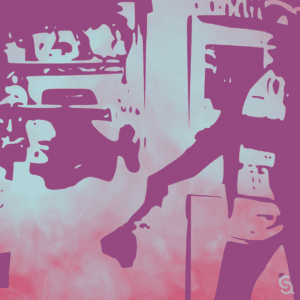
In a press conference the day after a deadly shooting in the Ft. Lauderdale airport, U.S. Attorney Karen Loeffler summarized the FBI’s response to the shooter’s November cry for help: “We’re a country of laws, and they operate within them.” She was referring to the federal officials who initially took a gun away from Esteban Santiago in Anchorage, Alaska, then returned the gun to his possession a month later.
We still don’t know whether this is the same gun Santiago claimed from his checked luggage in the Ft. Lauderdale airport a month after that and used to shoot 11 people, killing five.
Loeffler was right. Federal agents were merely following the law. The FBI had no legal authority to keep Santiago’s gun or to prohibit him from possessing a deadly weapon. No legal entity had legally established him as a person with serious mental illness, demonstrably dangerous to himself or others, a person who clearly and legally should not be in possession of a firearm.
So they did what they could: they turned him over to local police, who brought him to a psychiatric treatment facility for evaluation. After four days, he was released. Everyone involved in Santiago’s case neatly abided by the law.
Santiago also abided by the law when he placed the gun in his luggage and registered it for a trip to Ft. Lauderdale. Despite his history of domestic violence, his traumatic military service in Iraq, and his claim that he was hearing voices and his mind was under the control of a US intelligence agency, nothing stood in his way.
According to Santiago’s brother, Bryan, his family was concerned before the incident. “I told him to go to church or to seek professional help,” he said. In interview, Bryan sounds like so many other people with loved ones who may be headed for trouble. Santiago’s family was thousands of miles away, in Puerto Rico. And desperate loved ones are hopelessly bound by the limitations of the law, with almost no power to intervene when they know a person needs help—even when they suspect that person may commit violence.
Desperate loved ones are hopelessly bound by the limitations of the law, with almost no power to intervene when they know a person needs help—even when they suspect that person may commit violence.
Let’s be clear. It’s not apparent what role, if any, mental health problems played in Santiago’s violent outburst. And while it may seem like an easy answer, in most cases mental illness will not cause a person to become violent. In fact, most people with mental illness are far more likely to hurt themselves or become victims of violence.
Widespread misinformation and irresponsible journalism perpetuate myths and misconceptions about mental illness, particularly the widely held, erroneous belief that most people with mental illness are more violent and dangerous than the general population.
Studies consistently show this is not true. As with the general population, substance abuse does increase tendencies toward violence, but mental illness itself does not make people significantly more prone to violence than others. In fact, according to the U.S. Surgeon General’s office, “There is very little risk of violence or harm to a stranger from casual contact with an individual who has a mental disorder…the overall contribution of mental disorders to the total level of violence in society is exceptionally small.”
Regardless of whether or not Santiago has a mental illness, there was almost certainly more going on here. After all, Santiago had the mental capacity to purchase a one-way ticket to Ft. Lauderdale, make a connection in Minneapolis, register his gun as checked luggage, and claim it in the airport. And multiple studies have established that mental illness alone does not convert a peaceable person into a killer.
When it comes to addressing the gaps in our mental health care system, contrary to popular belief, large-scale acts of violence are not our main concern.
For most people with mental illness, who won’t commit a mass shooting or another act of large-scale violence, this doesn’t mean the illness has no destructive impact. Despite the critical importance—and high success rate—of quick intervention, more than half of American adults with mental illness receive no treatment at all. And untreated illness costs our society far more than treatment would. The economic cost of untreated mental illness is estimated at $100 billion to $444 billion a year. The human cost is incalculable, with 90 percent of deaths from suicide related to mental illness; people incarcerated for choices they never would have made in their right minds; and the social toll of self-medication with drugs and alcohol. Families are devastated by upheaval, financial instability, and the grief and loss of seeing a loved one’s vitality fade—perhaps repeatedly.
More than half of American adults with mental illness receive no treatment at all.
What can we do? Well, the problem is complex, and so are the solutions. But I hope more and more churches will recognize the opportunity we have to make a difference in this crisis. Santiago’s brother told him to go to a church for help. That’s what a lot of people do. In fact, the church is the first place many people go when they’re looking for help with mental illness. Among people who have sought treatment, 25 percent have gone first to a member of the clergy. This is a higher percentage than those who have gone to psychiatrists, general medical doctors, or anyone else. Unfortunately, many church leaders are ill-equipped to help people get the care they need. And while 25 percent of those who seek help from clergy have the most serious forms of mental illness, studies have shown that clergy refer less than 10 percent of them to mental-health professionals.
We can do better than this. We can do more than simply follow the letter of law and wash our hands of a person’s trouble.
As churches, and individual Christians, we have far less power than the FBI when it comes to preventing crime, stopping violence, and compelling treatment. But we do have the power to offer understanding, acceptance, and hope. We do have the opportunity to help people get connected in a network of relationships. We can work to destigmatize mental illness, to be sure people are treated with dignity and compassion within our fellowship, to direct people to appropriate help, and to assist with the expenses of care. We have the power to follow up and see how people are doing—to do our best not to let them get lost in the crowd. And we can add our voices in support of continued reform to the laws that allow people to slip through the cracks every single day.
We have far less power than the FBI when it comes to preventing crime, stopping violence, and compelling treatment. But we do have the power to offer understanding, acceptance, and hope.
The limitations of the law do not excuse us from our responsibilities as followers of Jesus. We are people of grace and mercy, called to loving relationships and carriers of the fragrance of Christ. May it be said of us, “They’re a community of love, and they operate within it.”
Amy Simpson is the award-winning author of Troubled Minds: Mental Illness and the Church’s Mission and Anxious: Choosing Faith in a World of Worry (both InterVarsity Press). She’s also a life & leadership coach and a frequent speaker. You can find her at AmySimpsonOnline.com and on Twitter @aresimpson.


